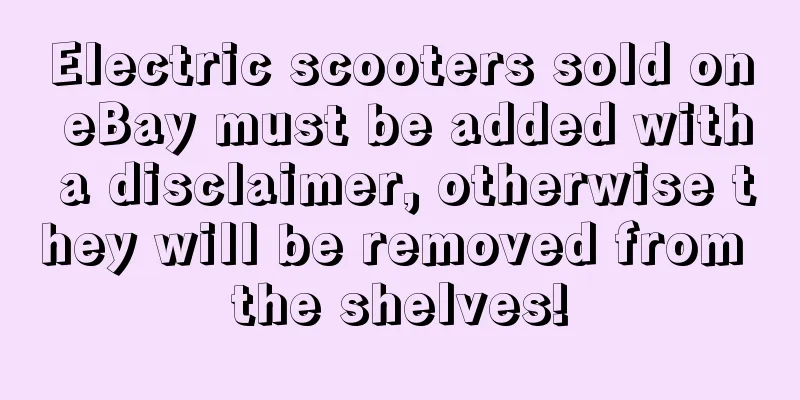Amazon's new insurance rules will take effect in 10 days, and individual sellers' insurance has been approved

|
Since Amazon issued its new insurance regulations, the mentality of most sellers has changed from "unwilling to believe" to "forced to accept". After all, Amazon's meaning is very clear. When sales reach the threshold, or do not reach it but Amazon thinks you need it, you must configure insurance.
Since they have to buy it, the sellers' concerns have changed: How to fill in the estimated annual sales? Can you buy a minimum value regardless of sales? How to buy insurance for accounts registered by Hong Kong companies? How to insure overseas stores? Can personal accounts be insured without ID cards? These questions have been answered one after another.
Amazon insurance is about to take effect, and individual sellers have successfully purchased insurance
Currently, there is still about a week before the new Amazon insurance rules come into effect. Currently, only some sellers have received emails notifying them of the insurance requirements, so they have decided to wait and see. Soon, Amazon’s official interpretation broke this illusion. Sellers on the US site have accepted the fact that they need to purchase insurance if their monthly sales exceed $10,000. In other cases required by Amazon, they must purchase insurance even if their sales do not meet the standards. This is basically universal.
Since you have to buy it, what other requirements does Amazon have for insurance? Amazon proposes that the seller's commercial liability insurance policy must meet all of the following standards:
1. The policy limits must be a minimum of $1 million per occurrence or aggregate and cover liabilities arising out of or related to your business operations, including products, products/completed operations, and personal injury; 2. The policy type can be commercial general insurance, umbrella insurance or excess liability insurance, and the claims are based on events; 3. Your insurance provider must have global claims handling capabilities and a financial rating of A- from Standard & Poor’s and/or A- from AM Best or higher; 4. Your insurance provider must provide Amazon with at least 30 days’ notice of cancellation, modification or non-renewal; 5. The policy must name "Amazon.com Services LLC. and its affiliates and assigns" as additional insureds; 6. The deductible for any policy may not exceed $10,000, and any deductible must be listed on the certificate of insurance; 7. The policy must cover all sales of products you list on the Amazon website; 8. Your insured name must match the "legal entity" name you provide to Amazon; 9. The policy must be completed and signed in full; and 10. The policy must be valid for at least 60 days from the date of submission.
Although the standards are in place, sellers still have many questions when purchasing insurance, such as the annual sales calculation method. For example, if a seller purchases insurance in August this year , they should fill in the estimated sales for the year ending in August next year. Some sellers think that the platform may just be going through the process of insurance and are ready to purchase the insurance at the lowest level, but other sellers remind them that they may be required to pay the premium.
A professional said that underinsurance has two problems: First, when making claims, they will pay out a proportionate amount. For example, if your sales are RMB 1 million, but you only reported RMB 500,000, then if a claim is RMB 100,000, they will only pay RMB 50,000, which is a proportionate amount. Second, underinsurance is not Amazon's original intention to avoid risks, and risks may be exposed in future audits.
Overall, the purchase of corporate accounts is relatively smooth, but it is difficult to purchase foreign accounts, Hong Kong accounts and personal accounts. Many sellers cannot even find a suitable insurance agency. However, at present, some individual sellers have successfully purchased insurance and completed the review.
The seller purchased insurance through Ping An, which is currently used and recommended by many sellers, and Amazon recommends individual sellers to have successful cases of approval. Individual sellers, overseas registered stores, Hong Kong companies, etc., can purchase insurance by scanning the QR code below.
After insurance is purchased, Ping An customer service can help with modifications until it is approved.
In addition, sellers on the European site have also been in a panic recently, and German sellers are troubled by VAT issues.
German sellers who receive the email must correct the information within 60 days
Recently, many sellers on the German site have received mass emails from Amazon, requiring the sellers' German tax number certificate address and company name to be consistent with the information on the Amazon backend.
Amazon mentioned in the email notification: The new German VAT law requires that the company name and address of the sales partner be matched with the German Federal Central Tax Office (BZSt) database. Sellers need to ensure that the data stored in the platform matches the data stored by BZSt and correct any mismatched information. Sellers need to change the information on the German Tax Office portal or the seller platform within 60 days if necessary, and notify the platform by email when the correction is completed.
After receiving the email, the sellers were confused because many people had inconsistent information. For some sellers, the background address was inconsistent with the tax address, and for some buyers, the background address was inconsistent with the business license address. More sellers also had a problem, that is, the background address itself was correct, but there were errors in translation. Such errors were generally spelling, capitalization, spaces, etc. Various situations would lead to inconsistent seller information.
A seller said that he received an address change message from Amazon Germany two days ago. He didn't pay attention to it at the time and didn't understand why. He just ignored the email as a normal mass email. Later, he saw feedback from his peers, saying that sellers who received the email should respond, so he dealt with it. When he dealt with it, he found that if he didn't respond within 60 days, his account might be ruined. He was really scared when he thought about it.
Like this seller, some sellers may treat this email from Amazon as a mass email and ignore it, but this is absolutely not allowed.
It is understood that quite a few sellers received the email this time. Because of the large number of sellers and the fact that everyone was discussing related topics, many people judged the email to be a mass email from Amazon. However, according to the feedback from sellers, almost all sellers who received the email had problems with incorrect information.
Regarding this matter, the editor consulted the staff of the relevant tax agency, who said that the emails from the German site were not sent by Amazon in bulk, but only by sellers with inconsistent information. Therefore, sellers who receive emails must pay attention to handle them in a timely manner to avoid problems with their accounts.
After the information inconsistency problem occurs, many sellers don’t know how to deal with it. Industry insiders have summarized the solution to this German tax law problem as follows:
1. Sellers who receive emails have problems to some extent. You must first check and verify the business license, tax certificate, and background information to see if the three are consistent;
2. If only the business license and tax certificate are consistent, the seller can modify the background information, but this operation may trigger the platform review ;
3. If only the business license and background information are consistent, the seller can contact the tax agency to modify the tax certificate;
4. If the business license, tax certificate, and background information are different, it is recommended that the seller take the latest business license as the standard and modify the tax certificate and background information;
5. If the business license, tax certificate, and background information are correct, but the tax agency made a mistake or there was a translation error, the seller can use his or her own email address, indicate the seller ID, write an English email to the platform to explain the relevant situation and inform the specific reasons. Explain the situation as detailed as possible and make it clear where the error is.
Sellers on the German site who receive emails can refer to the above methods to handle them in a timely manner.
Nowadays, Amazon platform compliance is imperative, whether it is insurance on the US site or taxes on the German site, sellers need to respond. Sellers who want to continue operating on the platform must strictly abide by relevant regulations. Since Amazon issued its new insurance regulations, the mentality of most sellers has changed from "unwilling to believe" to "forced to accept". After all, Amazon's meaning is very clear. When sales reach the threshold, or do not reach it but Amazon thinks you need it, you must configure insurance.
Since they have to buy it, the sellers' concerns have changed: How to fill in the estimated annual sales? Can you buy a minimum value regardless of sales? How to buy insurance for accounts registered by Hong Kong companies? How to insure overseas stores? Can personal accounts be insured without ID cards? These questions have been answered one after another.
Amazon insurance is about to take effect, and individual sellers have successfully purchased insurance
Currently, there is still about a week before the new Amazon insurance rules come into effect. Currently, only some sellers have received emails notifying them of the insurance requirements, so they have decided to wait and see. Soon, Amazon’s official interpretation broke this illusion. Sellers on the US site have accepted the fact that they need to purchase insurance if their monthly sales exceed $10,000. In other cases required by Amazon, they must purchase insurance even if their sales do not meet the standards. This is basically universal.
Since you have to buy it, what other requirements does Amazon have for insurance? Amazon proposes that the seller's commercial liability insurance policy must meet all of the following standards:
1. The policy limits must be a minimum of $1 million per occurrence or aggregate and cover liabilities arising out of or related to your business operations, including products, products/completed operations, and personal injury; 2. The policy type can be commercial general insurance, umbrella insurance or excess liability insurance, and the claims are based on events; 3. Your insurance provider must have global claims handling capabilities and a financial rating of A- from Standard & Poor’s and/or A- from AM Best or higher; 4. Your insurance provider must provide Amazon with at least 30 days’ notice of cancellation, modification or non-renewal; 5. The policy must name "Amazon.com Services LLC. and its affiliates and assigns" as additional insureds; 6. The deductible for any policy may not exceed $10,000, and any deductible must be listed on the certificate of insurance; 7. The policy must cover all sales of products you list on the Amazon website; 8. Your insured name must match the "legal entity" name you provide to Amazon; 9. The policy must be completed and signed in full; and 10. The policy must be valid for at least 60 days from the date of submission.
Although the standards are in place, sellers still have many questions when purchasing insurance, such as the annual sales calculation method. For example, if a seller purchases insurance in August this year , they should fill in the estimated sales for the year ending in August next year. Some sellers think that the platform may just be going through the process of insurance and are ready to purchase the insurance at the lowest level, but other sellers remind them that they may be required to pay the premium.
A professional said that underinsurance has two problems: First, when making claims, they will pay out a proportionate amount. For example, if your sales are RMB 1 million, but you only reported RMB 500,000, then if a claim is RMB 100,000, they will only pay RMB 50,000, which is a proportionate amount. Second, underinsurance is not Amazon's original intention to avoid risks, and risks may be exposed in future audits.
Overall, the purchase of corporate accounts is relatively smooth, but it is difficult to purchase foreign accounts, Hong Kong accounts and personal accounts. Many sellers cannot even find a suitable insurance agency. However, at present, some individual sellers have successfully purchased insurance and completed the review.
The seller purchased insurance through Ping An, which is currently used and recommended by many sellers, and Amazon recommends individual sellers to have successful cases of approval. Individual sellers, overseas registered stores, Hong Kong companies, etc. can all purchase insurance by scanning the QR code below or clicking to read the original text.
After insurance is purchased, Ping An customer service can help with modifications until it is approved.
In addition, sellers on the European site have also been in a panic recently, and German sellers are troubled by VAT issues.
German sellers who receive the email must correct the information within 60 days
Recently, many sellers on the German site have received mass emails from Amazon, requiring the sellers' German tax number certificate address and company name to be consistent with the information on the Amazon backend.
Amazon mentioned in the email notification: The new German VAT law requires that the company name and address of the sales partner be matched with the German Federal Central Tax Office (BZSt) database. Sellers need to ensure that the data stored in the platform matches the data stored by BZSt and correct any mismatched information. Sellers need to change the information on the German Tax Office portal or the seller platform within 60 days if necessary, and notify the platform by email when the correction is completed.
After receiving the email, the sellers were confused because many people had inconsistent information. For some sellers, the background address was inconsistent with the tax address, and for some buyers, the background address was inconsistent with the business license address. More sellers also had a problem, that is, the background address itself was correct, but there were errors in translation. Such errors were generally spelling, capitalization, spaces, etc. Various situations would lead to inconsistent seller information.
A seller said that he received an address change message from Amazon Germany two days ago. He didn't pay attention to it at the time and didn't understand why. He just ignored the email as a normal mass email. Later, he saw feedback from his peers, saying that sellers who received the email should respond, so he dealt with it. When he dealt with it, he found that if he didn't respond within 60 days, his account might be ruined. He was really scared when he thought about it.
Like this seller, some sellers may treat this email from Amazon as a mass email and ignore it, but this is absolutely not allowed.
It is understood that quite a few sellers received the email this time. Because of the large number of sellers and the fact that everyone was discussing related topics, many people judged the email to be a mass email from Amazon. However, according to the feedback from sellers, almost all sellers who received the email had problems with incorrect information.
Regarding this matter, the editor consulted the staff of the relevant tax agency, who said that the emails from the German site were not sent by Amazon in bulk, but only by sellers with inconsistent information. Therefore, sellers who receive emails must pay attention to handle them in a timely manner to avoid problems with their accounts.
After the information inconsistency problem occurs, many sellers don’t know how to deal with it. Industry insiders have summarized the solution to this German tax law problem as follows:
1. Sellers who receive emails have problems to some extent. You must first check and verify the business license, tax certificate, and background information to see if the three are consistent;
2. If only the business license and tax certificate are consistent, the seller can modify the background information, but this operation may trigger the platform review ;
3. If only the business license and background information are consistent, the seller can contact the tax agency to modify the tax certificate;
4. If the business license, tax certificate, and background information are different, it is recommended that the seller take the latest business license as the standard and modify the tax certificate and background information;
5. If the business license, tax certificate, and background information are correct, but the tax agency made a mistake or there was a translation error, the seller can use his or her own email address, indicate the seller ID, write an English email to the platform to explain the relevant situation and inform the specific reasons. Explain the situation as detailed as possible and make it clear where the error is.
Sellers on the German site who receive emails can refer to the above methods to handle them in a timely manner.
Nowadays, Amazon platform compliance is imperative, whether it is insurance on the US site or taxes on the German site, sellers need to respond. Sellers who want to continue operating on the platform must strictly abide by relevant regulations. Amazon, Insurance, Individual Sellers |
Recommend
eBay's generative AI is quietly launched, sellers: It's too long-winded
Generative AI has been gaining popularity recentl...
SHEIN urgently removed the product from the shelves, just because of a comment from a netizen
Recently, SHEIN urgently removed its products fro...
Recall incidents occur frequently, so check your safety standards quickly!
Bicycles are a very common means of transportatio...
Four major categories are selling well in Europe and the United States. The popular DTC is more attractive in this way
Direct-to-Consumer (hereinafter referred to as &q...
Australian furniture retailer Temple & Webster doubles revenue in third quarter
Australian furniture retailer Temple & Webste...
What is WorldFirst & WorldFirst Review
About WorldFirst Since its establishment in Londo...
More than 10 million users per week! South Korea's second-hand market is expanding rapidly
It is known that one in five Korean citizens uses...
What is Miravia? Miravia Review, Features
<span data-docs-delta="[[20,{"gallery"...
What is mogopod? mogopod Review, Features
Mogopod is an innovative company that prides itsel...
The peak season of the US clothing market has arrived! Lightweight and comfortable products are more popular among consumers
Due to the popularization of vaccines and the rel...
After submitting information many times without success, Amazon Canada seller NHP was removed
Recently, an Amazon seller reported that five of ...
What is China United Shipping Co., Ltd.? China United Shipping Co., Ltd. Review, Features
China United Shipping Co., Ltd. is committed to be...
The application fee for US standards has increased again, and the cost of cross-border transactions has increased
The cost of going overseas has been rising year a...
What is Creema? Creema Review, Features
Creema is a designer e-commerce platform with more...
$84 billion hot market! Outdoor products are hot in the US
In 2020, people spent as much as $84 billion on t...









